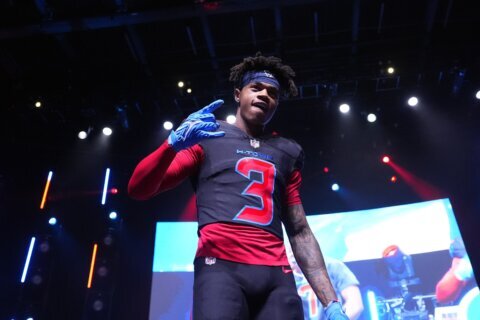In the late 1990s, then-NFL Commissioner Paul Tagliabue initiated meetings with minority assistant coaches throughout the league. Tagliabue sought input on why so few of them were being considered for head coaching and even coordinator positions.
One of the men he met with was Ted Cottrell, whose defenses in Buffalo were so prepared and efficient that they dominated an AFC East that included Dan Marino quarterbacking the Miami Dolphins.
Cottrell, who never landed that head coach position despite coordinating some superb defenses for the Bills, Jets, Vikings and Chargers, recalls Tagliabue’s passion for equity in hiring; the uneven playing field in which Cottrell and his Black peers were working; and Cottrell’s own outspokenness when asked about the inequitable situation.
“It was eight minority coaches and we met with him … just to sit down and talk with us and hear our thoughts about what was going on and what we thought the direction we should go to improve it,” the now-retired Cottrell says. “He was genuinely concerned about the lack of minorities in power positions: head coaches, coordinators or working for the front offices and the teams.
“He listened to us and he knew something had to be done as far as publicity and getting our names out there, being recognized for your work — something we really talked to him about.”
Lack of recognition was so common in those days it seriously inhibited the opportunities for Cottrell and other minority coaches. Cottrell told Tagliabue that when “the TV people and the press people will come in for our upcoming game and spend some time at the team (headquarters), they never talk to me. They NEVER talked to me.”
It got so bad that for a Bills game, his family was watching on television and the announcer said, “Look at Elijah Pitts priming the defensive line.” It was Cottrell, not Pitts.
“I said to them, ‘That is crazy, we don’t look anything alike: same color, yes. Different sizes. We coached different positions. Elijah was a running backs coach and he is on offense. I am on defense.’
“I said that these are things we need to improve. When our players play well, we don’t get any recognition.”
Tagliabue’s response?
“We got to be better than this,” Cottrell remembers the commissioner saying.
The NFL still needs to do better, as evidenced by only three Black head coaches and five minorities in the job overall in a league with about 70% Black players. Tagliabue, to his credit, had recognized the league’s shortcomings, which eventually led to the Rooney Rule being adopted for the 2003 season.
While interview opportunities now have increased for minorities seeking such high-level positions, Cottrell wonders if those interviews are simply a matter of course, as they were when he was coaching, and not true opportunities.
For example, when Wade Phillips was let go by the Bills after the 2000 season, Cottrell met with team management “but it wasn’t much of an interview, and they hired Gregg Williams.”
Fortunately, the Jets were seeking a defensive coordinator for the staff of Herman Edwards — one of the earliest Black head coaches — and Cottrell signed on there.
Three years later, the Rooney Rule brand new, he got an interview for the 49ers job.
“That interview process went very well, and they called me back for a second interview. They had it narrowed down pretty good. I was happy about that, I thought, ‘I got a shot at this thing.’”
Instead, Dennis Erickson got the job, though Cottrell received some encouragement from Hall of Fame coach Bill Walsh, who was tangentially involved in San Francisco’s hiring process.
“I got a hand-written note from him, and he said I was his top choice when I had the two visits,” Cottrell says. “He said he was quite impressed with me. He was a fair and open-minded guy. I thought that was very classy to do that and take that type of time.”
Walsh had little say on who the 49ers hired, though, and when Cottrell got one more interview in 2006 in Minnesota, “that was not legit, I don’t think. They already had the guy (Brad Childress) hired.”
“But because of the Rooney Rule, guys at least were getting talked to,” he says, referring not only to his days in the league but to more recent times. “About getting hired? I don’t know. It forced these teams to talk to some people, but those interviews, they are not fully legit as far as I am concerned. They will do the interview process, but they already have an idea of who they are going to hire. Do the interview, you know, so they are not in violation of the rule.”
Yes, the token interview.
“There is a lot of work that still must be done,” Cottrell insists. “The thing we had talked about before is check your body of work. If that guy has qualified for an interview, that is how a guy should be chosen for the job, if he has done good work, put his time in, and deserves it. … If I work my butt off, I should at least have an opportunity to talk legitimately to you and not get continuously overlooked.
“If you put me on the board and look at my resume and see the good things I have done and how I have performed, organized practices, presented myself, I should be (considered). But if you don’t give me the opportunity to compete for it, things won’t change. Give me a fair chance to compete for this job.”
___
More AP NFL coverage: https://apnews.com/hub/nfl and https://twitter.com/AP_NFL
Copyright © 2024 The Associated Press. All rights reserved. This material may not be published, broadcast, written or redistributed.







